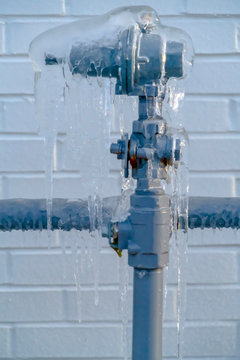Tips to Avoid Frozen Pipes in Cold Weather: Professional Guidance
Tips to Avoid Frozen Pipes in Cold Weather: Professional Guidance
Blog Article
How do you actually feel with regards to Preventing and dealing with frozen pipes?

Winter can wreak havoc on your pipes, particularly by freezing pipes. Here's exactly how to stop it from happening and what to do if it does.
Intro
As temperatures drop, the danger of icy pipelines boosts, possibly leading to pricey repairs and water damages. Recognizing just how to avoid frozen pipes is essential for house owners in chilly climates.
Understanding Icy Pipes
What triggers pipelines to freeze?
Pipelines freeze when revealed to temperatures listed below 32 ° F (0 ° C) for expanded periods. As water inside the pipelines ices up, it broadens, taxing the pipe walls and possibly creating them to burst.
Dangers and problems
Frozen pipes can bring about water supply interruptions, property damage, and costly repair services. Ruptured pipelines can flooding homes and create extensive structural damage.
Signs of Frozen Pipeline
Determining frozen pipes early can prevent them from bursting.
How to identify icy pipelines
Search for decreased water circulation from taps, uncommon smells or sounds from pipes, and visible frost on revealed pipes.
Avoidance Tips
Insulating vulnerable pipelines
Cover pipes in insulation sleeves or utilize heat tape to safeguard them from freezing temperature levels. Concentrate on pipelines in unheated or outside areas of the home.
Heating methods
Maintain interior areas appropriately heated, especially areas with plumbing. Open up closet doors to permit cozy air to distribute around pipes under sinks.
Safeguarding Outside Plumbing
Garden hose pipes and exterior taps
Disconnect and drain yard hoses before winter. Set up frost-proof faucets or cover outside taps with insulated caps.
What to Do If Your Pipelines Freeze
Immediate actions to take
If you think frozen pipes, keep faucets available to eliminate stress as the ice thaws. Utilize a hairdryer or towels soaked in hot water to thaw pipes gradually.
Long-Term Solutions
Architectural modifications
Think about rerouting pipes far from outside walls or unheated areas. Include additional insulation to attics, cellars, and crawl spaces.
Upgrading insulation
Invest in top notch insulation for pipelines, attics, and wall surfaces. Correct insulation aids keep consistent temperatures and minimizes the threat of icy pipelines.
Conclusion
Avoiding frozen pipes requires proactive steps and quick reactions. By comprehending the causes, signs, and preventive measures, homeowners can protect their pipes during cold weather.
Helpful Tips to Prevent Frozen Pipes this Winter
UNDERSTANDING THE BASICS: WHY PIPES FREEZE AND WHY IT’S A PROBLEM
Water freezing inside pipes is common during the winter months, but understanding why pipes freeze, and the potential problems it can cause is crucial in preventing such incidents. This section will delve into the basics of why pipes freeze and the associated problems that may arise.
THE SCIENCE BEHIND FROZEN PIPES
When water reaches freezing temperatures, it undergoes a physical transformation and solidifies into ice. This expansion of water as it freezes is the primary reason pipes can burst. As the water inside the pipe freezes, it expands, creating immense pressure on the walls. If the pressure becomes too great, the pipe can crack or rupture, leading to leaks and water damage.
FACTORS THAT CONTRIBUTE TO PIPE FREEZING
Low Temperatures: Extremely cold weather, especially below freezing, increases the risk of pipes freezing. Uninsulated or Poorly Insulated Pipes: Pipes located in unheated areas, such as basements, crawl spaces, or attics, are more prone to freezing. Insufficient insulation or lack of insulation altogether exacerbates the problem. Exterior Wall Exposure: Pipes running along exterior walls are susceptible to freezing as they encounter colder temperatures outside. Lack of Heating or Temperature Regulation: Inadequate heating or inconsistent temperature control in your home can contribute to frozen pipes. PROBLEMS CAUSED BY FROZEN PIPES
- Pipe Bursting: As mentioned earlier, the expansion of water as it freezes can cause pipes to burst, resulting in significant water damage.
- Water Damage: When pipes burst, it can lead to flooding and water damage to your property, including walls, ceilings, flooring, and personal belongings.
- Structural Damage: Prolonged exposure to water from burst pipes can compromise the structural integrity of your home, leading to costly repairs.
- Mold and Mildew Growth: Excess moisture from water damage can create a favorable environment for mold and mildew growth, posing health risks to occupants.
- Disrupted Water Supply: Frozen pipes can also result in a complete or partial loss of water supply until the issue is resolved.
WHY CERTAIN PIPES ARE MORE PRONE TO FREEZING
- Location: Pipes located in unheated or poorly insulated areas, such as basements, crawl spaces, attics, or exterior walls, are at higher risk of freezing.
- Exterior Pipes: Outdoor pipes, such as those used for irrigation or exposed plumbing, are particularly vulnerable to freezing as they are directly exposed to the elements.
- Supply Lines: Pipes that carry water from the main water supply into your home, including the main water line, are critical to protect as freezing in these lines can affect your entire plumbing system.
- Underground Pipes: Pipes buried underground, such as those connected to sprinkler systems or outdoor faucets, can be susceptible to freezing if not properly insulated.
https://busybusy.com/blog/helpful-tips-to-prevent-frozen-pipes-this-winter/

I found that piece about Preventing and dealing with frozen pipes when scouting around the search engines. For those who liked our blog post if you please don't forget to share it. Thanks for your time. Kindly stop by our blog back soon.
Call Today Report this page